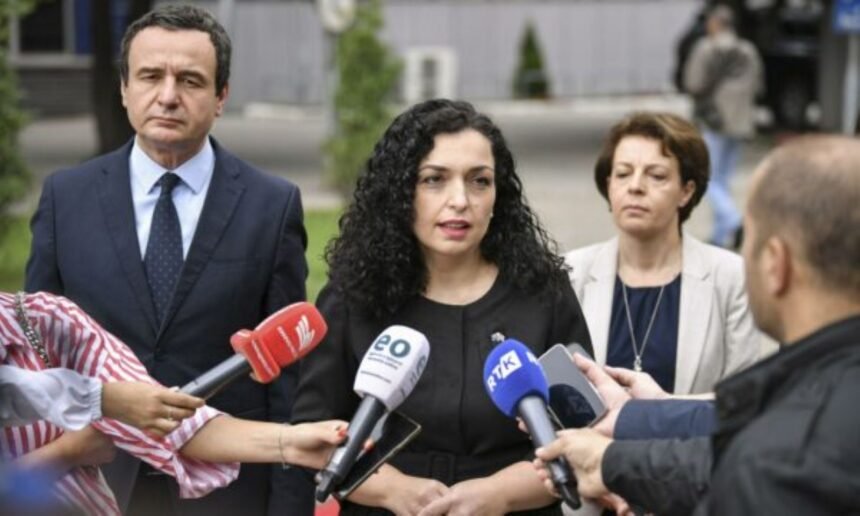Kosovo’s foreign policy — its key tool of influence and security — is under severe strain. The country is grappling with EU sanctions, uncertainty in relations with the United States, and unresolved challenges in its dialogue with Serbia. Adding to these pressures is a visible lack of coordination among Kosovo’s institutions, which undermines clarity in presenting positions to international partners.
Former diplomat Albert Prenkaj argues that Kosovo lacks a coherent foreign policy built on clear strategy and consolidated alliances. He stresses that Kosovo has lost relevance internationally due to a “total absence of coordination” and reliance on ad hoc decisions rather than structured diplomacy.
For more than two years, Kosovo has faced sanctions from the European Union, imposed over government decisions seen as unilateral and harmful to the Serb community. More recently, the U.S. suspended the launch of the Strategic Dialogue with Kosovo, increasing the country’s sense of isolation.
While Prime Minister Albin Kurti acknowledged some differences with Washington, he insisted that ties with the U.S. remain intact. President Vjosa Osmani, however, expressed regret over the suspension of the Strategic Dialogue and emphasized the importance of maintaining strong links with Washington.
During the UN General Assembly in New York, Kurti, Osmani, and Acting Foreign Minister Donika Gërvalla each pursued separate agendas, highlighting divisions. Osmani met with U.S. President Donald Trump and Secretary of State Marco Rubio, while Gërvalla joined a women foreign ministers’ forum and held side meetings. Kurti met with U.S. congress members and the Albanian-American community. No high-level joint meetings with U.S. officials were announced.
The Constitution of Kosovo gives the Presidency authority over foreign policy, but this has often caused tension with the Government. Kurti and Osmani, once political allies, have since diverged in their approaches, especially on relations with allies, the Association of Serb-majority municipalities, and trade policies with the U.S.
Analyst Donika Emini notes that such clashes are not new, recalling disagreements between former leaders Hashim Thaçi and Ramush Haradinaj over potential border changes in 2018. She warns that these uncoordinated approaches make Kosovo appear unstable and unserious in the eyes of international partners.
The lack of strategy is also evident in relations with Washington. Unlike Serbia, which maintains six active lobbying contracts in the U.S., Kosovo currently has none, putting it at a disadvantage in diplomatic competition. Emini highlights Taiwan as an example of how a small, diplomatically isolated country can still project strength through coherent policies and close coordination with partners.
Prenkaj believes that Kosovo’s way forward lies in fulfilling commitments in the dialogue with Serbia, particularly on the establishment of the Association of Serb-majority municipalities. Only then, he argues, can Kosovo demand the lifting of sanctions, push for membership in the Council of Europe, and secure recognition from the five EU states that do not yet recognize it.
Both experts agree: Kosovo needs a foreign policy above internal rivalries, one that prioritizes state interests over personal egos. Without this, sanctions and isolation will persist, blocking progress in Kosovo’s Euro-Atlantic path.







